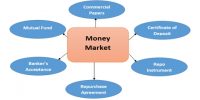Trading in bonds (secondary market broking and dealing) is a size able business in most financial markets. As noted earlier the secondary market is either OTC or exchange-driven. The market is “made” / facilitated by a number of players:
- Members of bond exchanges where such exchanges exist. The members are the banks, smaller broker-dealers and interdealer brokers. In some countries the banks act as primary dealers (a subset of market makers), which is dealt with later. The broker-dealers are smaller firms that trade for own account or for clients. Interdealer brokers exist in some markets; they offer a brokerage service exclusively between the members of the exchanges.’
- Discount houses. In some countries where exchanges do not exist and the banks are reluctant to make a market in bonds, the discount houses (which are specialized banks) act in this capacity.
- Banks. In some countries where exchanges do not exist the banks act as market makers / primary dealers.
- Issuers. Certain issuers make a market in their own paper, with the objective of enhancing the liquidity of their paper, thus reducing the rate of interest (cost) for them.
- Speculators / arbitrageurs. These may be members of exchanges (the members that only deal for themselves) or non-members. Most of them trade intra-day in order to avoid settlement outlays. Their usefulness lies in increasing the turnover in the bond market, leading to efficient price discovery.
- Investors. The investors play a significant role in the bond market. The major investors as noted are the retirement funds and insurers), the foreign sector (mainly foreign retirement funds) and bond unit trusts.












